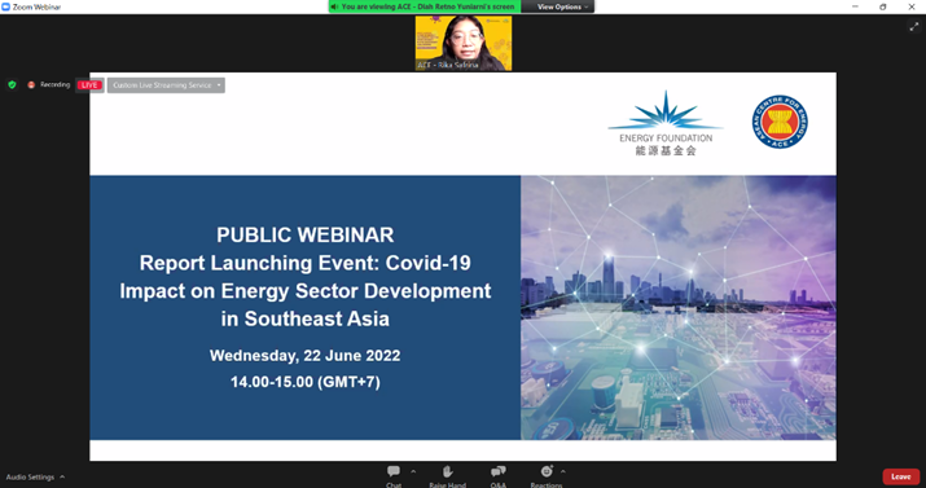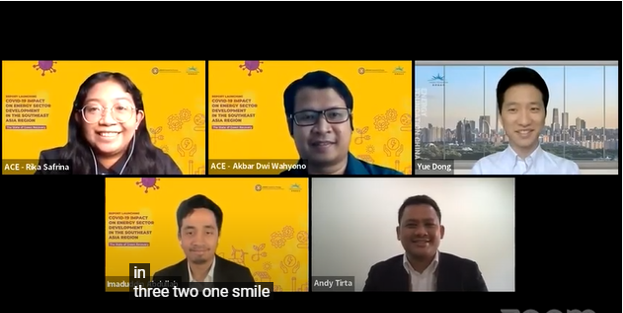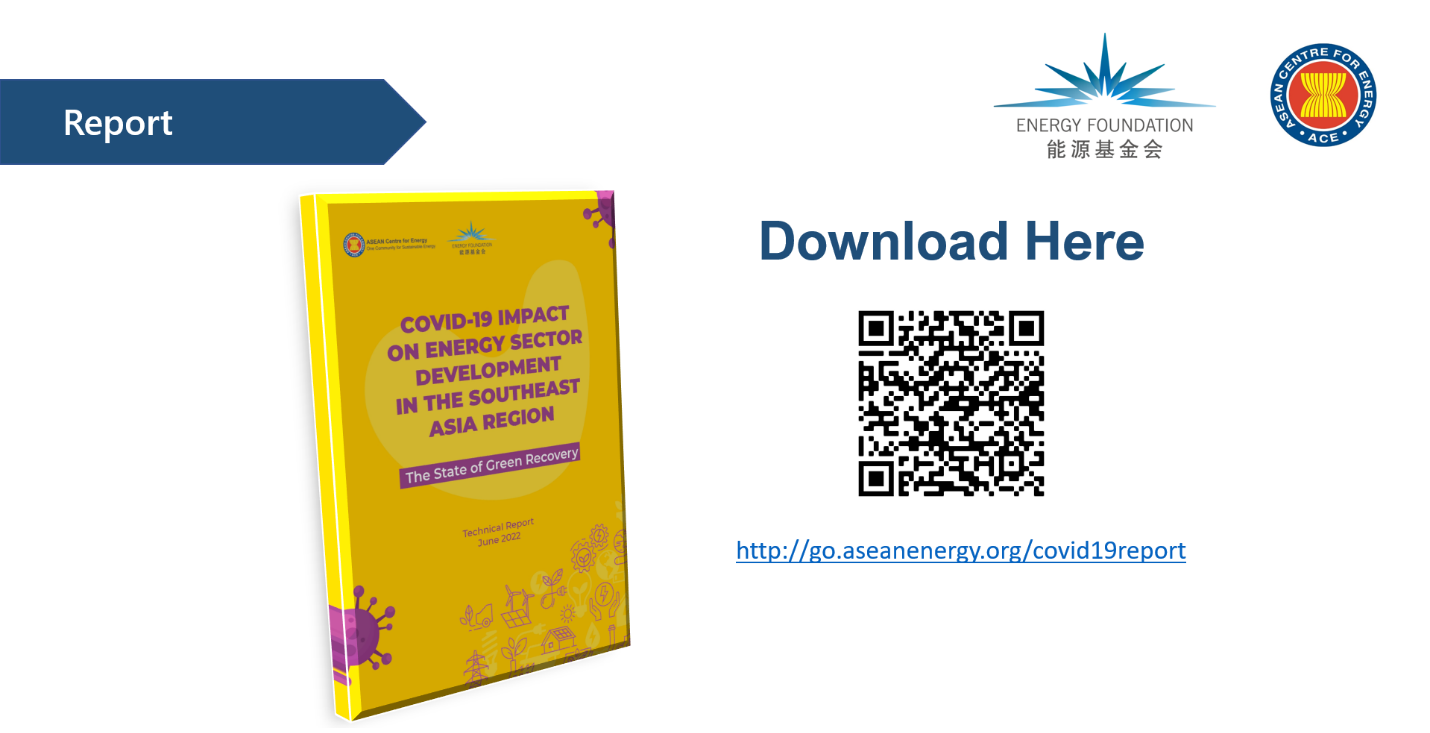Menu
Wednesday, 22 June 2022

ASEAN Centre for Energy (ACE) and Energy Foundation China (EFC) have convened a webinar to launch the latest joint report entitled “Covid-19 Impact on Energy Sector Development in Southeast Asia” to the public. The event was moderated by Ms. Rika Safrina, a Technical Officer of Modelling and Policy Planning (MPP) at ACE. Opened by Dr. Dong Yue, Research Fellow of EFC, and Dr. Andy Tirta, MPP Manager of ACE, the webinar was held on June 22, 2022, in Zoom conferences mode, presenting three experts on the topic.

During the first session, one of the report’s authors, Mr. Imaduddin Abdullah, a Researcher at the Institute for Development of Economics Finance (INDEF), explained the main findings. The Covid-19 pandemic has profoundly impacted many aspects of life and triggered an economic shock worldwide. The study tried to simulate what would happen if the government provided green fiscal stimulus during the pandemic using Computable General Equilibrium (CGE) analysis to assess the potential impact of the Covid-19 on the economy, energy sector, and environment (carbon emission). The simulations show that Covid-19 has caused a drop in the economy, energy sector, and environment. However, if the government provides a green fiscal stimulus, the negative impact on the economy will be moderated, and carbon emissions will be reduced. This study has resulted in a policy recommendation to achieve the target amid fiscal constraints and disruption. The authorities may consider some suggestions, including: (1) performing green fiscal consolidation, (2) leveraging private participation, and (3) mobilising global and regional funding. When this additional fiscal has been received, it is recommended to spend it on: (1) green public investments, (5) green conditionality, and (6) creating green demand.
The second speaker, Dr. Yue Dong, shared his presentation about “China’s energy investments in a post-Covid era.” He saw that economic recovery and energy security are the new political point of attention these days. Economic recovery, energy security, and climate mitigation are highly overlapped and complementary, while the center of the overlapped is energy transition. Investment is one of the significant factors to help the Chinese economy into steady and long-term growth. Focusing on sustainable technologies in the manufacturing sector, such as building electric transportation, train, and low-carbon appliances, could boost the economy and help get out of the crisis. Meanwhile, in the electricity sector, it is recommended that the country put its orientation on investment in flexibility, not on more thermal capacity. Dr. Yue also explained the need for mutually beneficial international cooperation between China and other countries, such as reducing tariffs, coordinating common standards of low-carbon equipment, and empowering local populations.
Next, Mr. Akbar Dwi Wahyono gave a presentation titled “Covid-19 impact on ASEAN Power Sector”. He is a Technical Officer of Power, Fossil Fuel, Alternative Energy, and Storage at ACE. Electricity demand in the region is expected to continue its rebound along with economic recovery. However, the rebound should be handled wisely. Amid the pandemic, the Southeast Asia region registered approximately 22 KW of new additional capacity in 2020. About 82% of the ASEAN new capacity in 2020 was renewable, a notable new trend. To recover, ASEAN Member States showed efforts to put renewable energy as a focus of the recovery strategy. Starting in 2020, this is a momentum to redirect the ASEAN energy landscape to be more sustainable and build back better. Mr. Akbar concluded that the Covid-19 pandemic disrupted the ASEAN energy sector in 2020 and left the sector in great uncertainty. However, these factors will influence the future of the ASEAN power sector, including (1) new plans for power development at country levels, (2) AMS’ stronger climate commitment – a new pathway to net-zero emission target, (3) significant turning point for the power sector, and (4) influence of international energy agenda.
 To learn more about this topic:
To learn more about this topic:
(DRY / RS)
